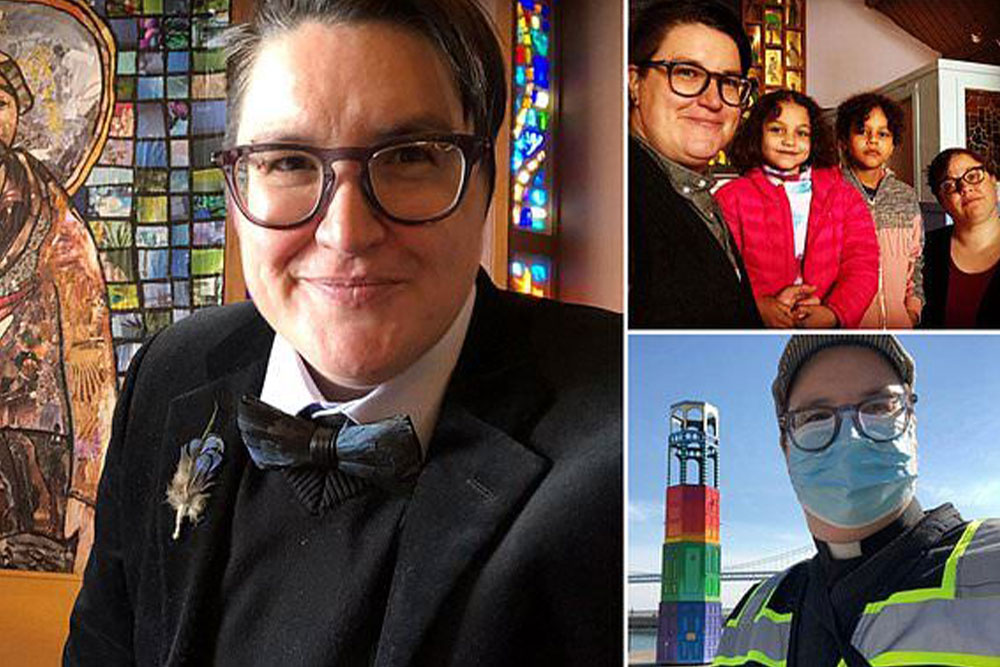When the Rev. Megan Rohrer became the first transgender pastor in the Lutheran church, they made history. And their streak continues this month, this time as the church's first transgender bishop.
Earlier this month, Rohrer was elected Bishop of the Sierra Pacific Synod of the Evangelical Lutheran Church in America. Rohrer will lead the synod, which is a regional grouping of congregations that includes northern California and parts of Nevada, for the duration of their six-year term.
Rohrer, who uses the pronouns ‘they’ and ‘them’, describes their new role as being the "pastor of the pastors and cheerleader of almost 200 congregations."
"It's humbling," they told a news portal. "It's inspiring. And I think I'm very aware that this call is bigger than me—that it's about serving God, and it's about ... a place in history that means a lot to a lot of people."
Along with the Episcopal Church, the Lutheran Church is one of only two Christian denominations that allows transgender people to serve as clergy.
Many Christian denominations, including their own, have been hostile to trans people, according to Rohrer. Their encounters with "religious violence", such as the idea that being transgender is impossible, inspired them to study religion in college and ultimately become a pastor in the Lutheran church, where they felt welcomed, Rohrer told a lifestyle magazine in 2018.
They were ordained in the church before the church welcomed LGBTQ+ ministers, and they stayed after the church's policies changed in 2009 (the following year, Rohrer was formally recognised as a Lutheran pastor). They told a news portal that they were moved by the church's focus on helping the disadvantaged and pushing for community-based reform.
After more than a decade, the church has no reservations in accepting Rohrer into the new leadership position. The Rev. Elizabeth Eaton, Presiding Bishop of the Evangelical Lutheran Church in America (ELCA), said Rohrer's election exemplifies the church's commitment to welcoming all visitors.

The pandemic compelled Rohrer and their congregation, Grace Lutheran Church in San Francisco, to change their leadership style. Rather than conducting services in a church house, Rohrer broadcasts them live from their home. According to them, their children often make surprise appearances in the live streams. "For some people who've never seen a family like mine—I'm married to a woman, and I have two Black children—for people to see my family, it's really healing for some LGBTQ+ families," they added.
Apart from their responsibilities at Grace, Rohrer spent the pandemic praying with first responders, such as cops and EMTs, whose work was hampered by COVID-19 (Rohrer is also the Community Chaplain Coordinator for the San Francisco Police Department). When the pandemic kept medical staff out of those rooms, they set up a phone line for a hospital chaplain to talk with them, Rohrer said.
The work may seem unrelated to their primary responsibilities as pastors, but Rohrer thought it was critical to continue caring for their community during a prolonged crisis. They said that their leadership during the pandemic encouraged electors to vote for them in the bishop election, which had been postponed for a year due to COVID-19.
Pastoral colleagues persuaded Rohrer to run for bishop, and they have continued to support them in their election. They're now dedicated to guiding the 200 churches they'll preside over with modesty, they said.
According to Rohrer, they will begin their six-year term in July.